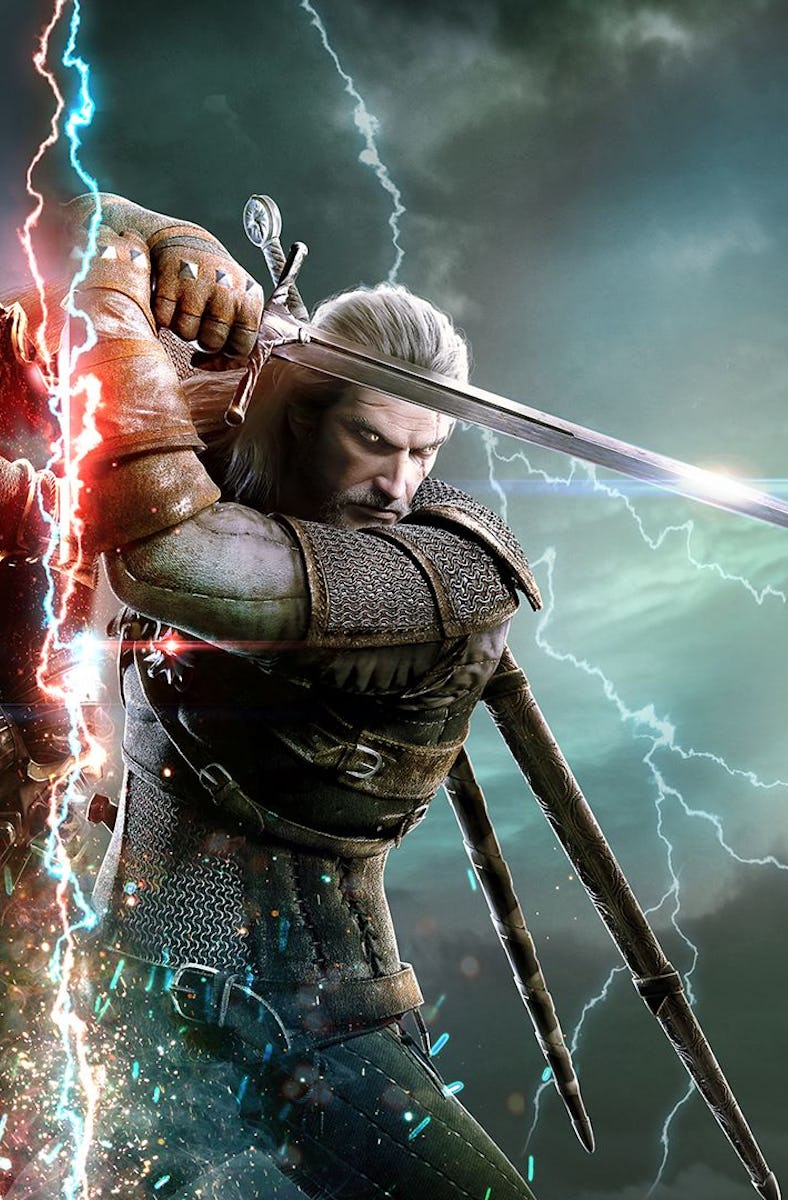Tekken Creator Blames Corporate Expectations For Soul Calibur's Absence
"Not one person talked about the career path of a game developer," Tekken Director Katsuhiro Harada said.

As Tekken 8 kicked off another series renaissance earlier this year, fans of the Soul Calibur series have had to watch from the shadows with envy. This week, Tekken’s series director Katsuhiro Harada provided some depressing yet insightful details into why developer Bandai Namco’s other fighting series has been left in the dust.
In response to a tweet speculating about Soul Calibur’s trajectory since its debut 25 years ago, Harada provided a lengthy breakdown of how the promotion of key figures who worked on the beloved weapon-based fighting games meant pulling them away from the creative side of the development process. He said that weakened the series “little by little” over time.
“I am not saying that is all,” Harada said. “But it was a big factor. It happened due to organizational policy, not individual problems.” Unlike Western game development, where publisher and developer executives tend to be people more well-versed in the business side of how to keep companies afloat, Japanese organizations tend to promote their best creators to these roles, according to Harada.
Tekken series director Katsuhiro Harada says the corporate structure of companies like Bandai Namco make it hard for franchises like Soul Calibur to evolve.
According to the famed director, this phenomenon didn’t just impact Soul Calibur, but all of the popular series under Bandai Namco’s purview, particularly after the 2005 merger of toy company Bandai, and publisher Namco.
Harada said that leaders of Ace Combat Project, TEKKEN Project, and Project Soul were always asked “How long are you going to be in the field?” and “When are you going to become a manager?” by top executives within Bandai Namco.
“No one in the organization at the time was asking, ‘When are you going to grow up to be a great game developer?’” he explained. “Not one person talked about the career path of a game developer. It was all about management and administration, and it was true that this was not an organization that could properly evaluate the content of games and their value.”
The Tekken series has seen great success due to Harada’s insistence on being involved in its development.
Harada said company culture viewed moving on to managerial roles as broadening one’s perspective to all levels of game development. Inversely, honing one’s mastery over a specific game or series over a long time was seen as stagnant career development.
“In fact, at the time, the only way to advance one's career was under such a system,” he said.
While Harada’s tweet only speaks to his experience at Bandai Namco, it echoes many of the same sentiments in the games industry at large is coming to grasps with. Retaining talent is crucial to making a development team better over time. It’s a business practice that companies like Nintendo, which consistently releases high-quality games, proudly preaches about keeping employees on board.
The Soul Calibur franchise had a tremendous start, according to Harada. When its predecessor Soul Blade launched in 1995, Harada says it was much more successful as a console game compared to Tekken. He credited the series’ creator Hirokai Yotoriyama and the team of engineers behind the series with being more knowledgeable about fighting games than he and the team working on Tekken.
The most recent game in the Soul Cailbur series is 2018’s Soul Calibur 6.
However, the company structure of moving star creators up the corporate ladder had a gradual impact on subsequent Soul Calibur games.
“Each time a project's key players were peeled away, the big dreams and visions that the project once held became weaker,” he said. “Project Soul was struggling to survive (or so it seemed to me), especially among its younger members.”
Harada said that he was put in a similar position by Bandai Namco against his well, promoted to head the company’s Global Business Development department, far away from the more hands-on side of making games. He said the only reason Tekken subverted the same pitfalls Soul Calibur did is because of his and his team’s stubbornness.
“I made the decision to lead the TEKKEN Project despite the fact that I was in a different company, department, and division, and had no budget authority. I practically manipulated the creative and budget planning,” he said. “This move was very much disliked by the publisher.”
Nintendo has preached the importance of retaining talent, attributing the greatness of games like 2023’s The Legend Of Zelda: Tears Of The Kingdom to the company’s tendency to keep teams intact between games.
Harada’s tell-all tweet also speaks to the difference between running a successful game company and creating games. Players recently saw Helldivers 2 developer Arrowhead Studios make substantial changes in leadership to this exact point. The studio hired a new CEO in Shams Jorjani, a career gaming executive to replace studio founder Johan Pilestedt. Pilestedt said the move was made so he could focus on making the successful live service game better instead of the “boring business administration stuff that is a necessary part of running a company.”
Despite both series being under the umbrella of Bandai Namco, Soul Calibur has felt more like the publisher’s neglected stepchild than an equal to the more popular Tekken games. The last entry in the series, Soul Calibur VI released in 2018. Despite rave reviews, Soul Calibur VI was less successful than its more popular cousin. While Soul Calibur VI took three years to reach two million copies sold, Tekken 8 hit the same milestone in three weeks. There have not been any announced plans for what’s next in the Soul Calibur series.